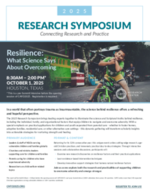The Centre for Child Protection’s ‘Critical Conversations in Child Protection’ is a webinar series aimed at facilitating learning from the latest research, practice knowledge, theory and lived experiences around safeguarding children and young people.
The 6th BICON Conference on Alternative Care for Children in Asia will be held on 15 and 16 October 2025 in Kuala Lumpur, Malaysia. Since 2014, BICON has been a significant event focusing on the rights of children and young people without parental care.
This online expert training will provide a regional overview of the regional framework surrounding transition to adulthood in Europe, as well as recent changes. Experts will share their experience with supporting children as they transition to adulthood, and how guardians are a key safeguard in this critical phase.
Changing the Way We Care (CTWWC) has worked since 2018 to strengthen national care systems in Guatemala, India, Kenya, and Moldova, with a focus on laws, services, and the workforce that support safe, nurturing family care. This webinar will present evaluation findings and theories of change, offering lessons for care reform actors worldwide, with Spanish interpretation available.
The ISPCAN International Congress on Child Abuse and Neglect is scheduled for October 6–9, 2025, in Vilnius, Lithuania, uniting global leaders and professionals in child protection—from sectors such as law, medicine, social work, education, public health, government, and NGOs—to advance research, practice, and policy for child welfare.
The Global Kinship Care Week 2025 (GKCW 2025) will take place from 6–12 October. Organised annually by Family for Every Child, the week is held in collaboration with more than 20 civil society organisations worldwide to raise awareness about the importance of kinship care.
Systems thinking has the power to transform early childhood development. But what is meant by systems thinking, and how can it be applied to service delivery and policy design? Join ECDAN for this important webinar to discuss a systems approach to childcare.
The 2025 CAFO Research Symposium brings leading experts together to illuminate the science and Scriptural truths behind resilience, including the individual, family, and organizational factors that equip children to navigate and overcome adversity. With a special emphasis on practical applications for children and youth separated from parental care - whether in foster homes, adoptive families, residential care, or other alternative care settings - this dynamic gathering will transform scholarly insights into actionable strategies for nurturing strength and healing.
The Global Kinship Care Week 2025 (GKCW 2025) will run from 6-12 October.
The second GKCW, will use global messaging to position kinship care as a mechanism to strengthen families and to call on governments to recognise and invest in kinship care.
The 2024 Global Ministerial Conference marked a historic milestone, generating over 370 pledges from more than 100 member states to end violence against children.

